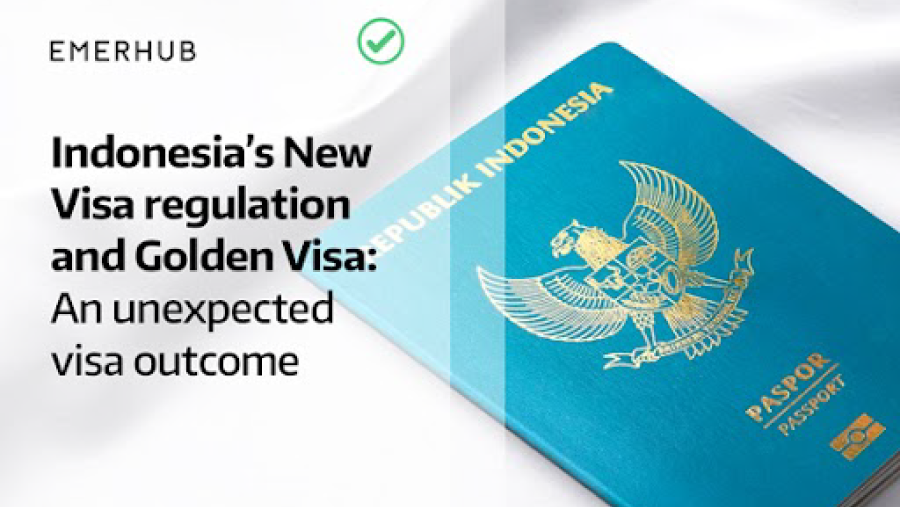Have you ever excitedly awaited the climax of your favorite sporting event, only to have it turn into a tedious and uneventful match? Well, imagine that sensation, but in the context of the Indonesian Government’s new regulations for the Golden Visa.
The recent news of a visa being granted to Sam Altman, the founder of OpenAI (ChatGPT), by the President of Indonesia initially appeared as a beacon of hope. It signified Indonesia’s intent to diversify its investment opportunities and invite the world in. Many of us were optimistic, thinking this would herald a simplified visa application process for foreigners. However, our optimism was swiftly followed by the implementation of a new law, leaving us with questions about its purpose and direction. The latest visa regulation still includes some good news such as the new remote worker visa that the digital nomad would probably appreciate.
In the fiercely competitive landscape of Southeast Asia, nations are engaged in a race to attract foreign investments. Indonesia, and specifically Bali had been making strides to redefine their economic future. The government launched various initiatives, including a second home visa and reforms in property ownership regulations, all aimed at attracting Foreign Direct Investment (FDI) and catering to High Net Worth Individuals (HNWI).
In recent years, we’ve seen encouraging signs that the government was committed to amplifying investments in Indonesia and positioning the country as a hub for global creative talent. Many of us share a deep-rooted love for Indonesia and believe in the potential of its vibrant ecosystem and young generation. However, it’s crucial to not just focus on intentions but also scrutinize the implementation of these plans.
When we look at countries like the United States, Singapore, and various European nations, they continue to lead in their ability to attract talent and streamline the business ecosystem and visa application processes for investors. Bali has long been a melting pot for diverse individuals and entrepreneurs. The recent announcement of the new visa was expected to signal Indonesia’s dedication to embracing this new era of innovation and creativity. However, it appears that the new regulation may still be rooted in an old paradigm, one that favors established companies over newcomers.
Indonesia undoubtedly needs these investments, but it’s time to open the doors to investors who not only want to invest but also to create and transform Indonesia into a hub for a new era, rather than clinging to outdated practices.
The Golden Visa concept was a brilliant idea, and there’s still an opportunity to adapt and rejuvenate it, making Indonesia a genuine leader in creativity, and innovation, and a prime destination for Foreign Direct Investment. In this unexpected regulation, there are still some positives such as the remote worker visa expected by a lot of people currently living in Indonesia. It’s tax implications still need to be clarified but it will certainly fit a lot of people willing to relocate to Bali or the rest of Indonesia.
At Emerhub, we understand that regulations like this may leave foreign investors with questions about the viability of their business and activities in Indonesia. To decipher this regulation, Emerhub will be providing daily updates outlining the fresh implications of this directive, detailing its effects on you, and shedding light on potential opportunities you can seize such as:
- New requirements for the investor KITAS
- New conditions for the retirement KITAS
- New Golden Visa
- New rules for the second home visa
- New remote worker visa
- New options for the multiple entry business visa
Subscribe to our mailing list below to receive updates, or get in touch today to discuss how these regulations may impact your business.







